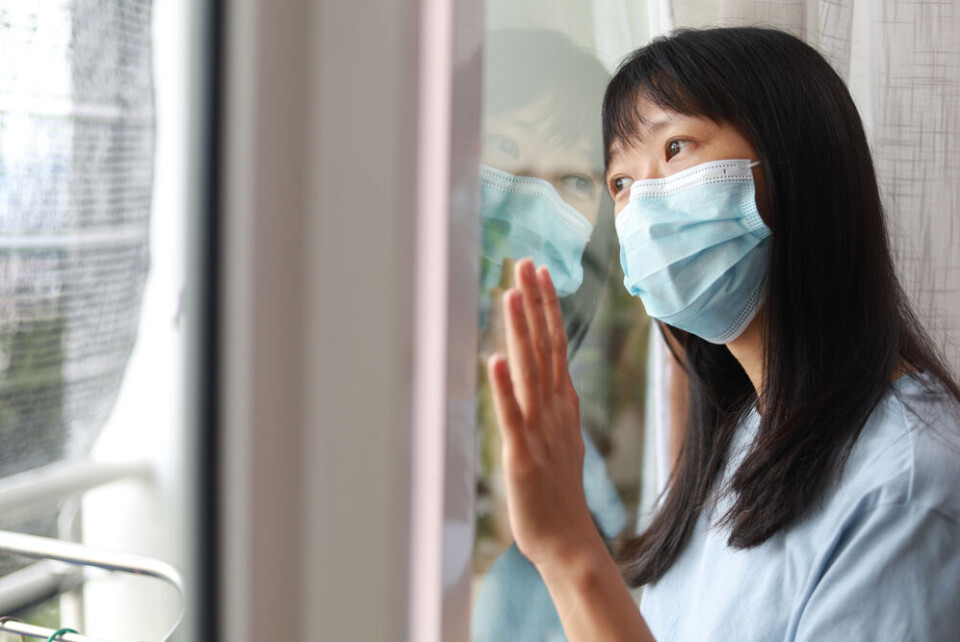-
Festivals, holidays and places to visit in France in April 2025
Including a gladiator battle in a Roman arena, an international garden festival and the Paris marathon
-
Many Société Générale customers to be charged additional fees from April
There is some good news for international banking and instant transfers, however
-
Why gas prices in France are rising in April - and by how much
It comes after six consecutive monthly rises. Try these tips to reduce your bills
France aims to make quarantine mandatory for positive Covid cases
The government wants the 10-day self-isolation period for people who test positive to be legally enforceable with random checks and fines. The plan will be debated as part of a new bill

The government is aiming to make the 10-day quarantine period mandatory for people in France who test positive for Covid-19, with random checks and fines for rule breakers.
Currently, self-isolation for those who test positive for Covid or who are found to be contact cases is advised but is not legally enforced.
The proposal to make it mandatory appears in a government bill set for discussion in parliament from July 21.
The draft legislation also contains proposals for other new Covid-related measures - such as wider use of a health pass and obligatory vaccination for certain workers - that were set out by President Emmanuel Macron in a televised address on Monday evening (July 12).
Read more: Health pass extended, more vaccination: Macron’s anti-Covid measures
The proposal to make the quarantine mandatory was not announced by Mr Macron in his speech on Monday, but has been included in the bill after consideration by the government, Health Minister Olivier Véran stated yesterday in an interview with BFMTV.
“When you arrive in France [from another country], a prefectural order can be made to enforce an obligatory quarantine, but when you are infected in the country, there are essentially no restrictions. This is something we have thought about,” Mr Véran said.
“We have a bill that will be presented to parliament, and [this mandatory quarantine] is one option that we are examining.
“We know it is not easy under French law [to enforce a mandatory quarantine], so it is not certain that if we put this proposal in the bill that the Conseil d'État will say that we can do it, or that the parliament will say that we can do it,” Mr Véran said.
“I have numbers for the Ile-de-France that show that respect for the quarantine among people positive with Covid-19 is not even over 50%.
“It is fundamental to respect the rules when you are positive or a contact case, because if not, everything else we are doing is a lot less effective,” he said.
Mr Macron announced a series of new measures in his televised speech aimed at combating the increase in the number of Covid-19 cases in the country, mainly related to the Delta variant.
The measures include expanding the use of the ‘health pass’ so that it is required in public spaces with over 50 people. The government also intends to expand this from August to allow entry to cafés, restaurants, cinemas, planes, trains and buses.
He also said that Covid-19 vaccinations are now mandatory for staff (healthcare and non-healthcare) working in hospitals, clinics, retirement homes, establishments for persons with disabilities, and all workers or volunteers who work in contact with elderly or vulnerable people, including at their homes.
Checks and sanctions for these staff are to be brought in from September 15.
These proposals will need to gain the approval of both parliament and the Conseil d'État, which is the highest administrative jurisdiction in France and ensures that the government operates in compliance with the law.
What is the health pass?
France’s health pass (pass sanitaire) is not a document in itself and refers to:
-
A Covid-19 test (rapid antigen or PCR) showing a negative result and taken within the past 48 hours
-
A Covid-19 vaccination certificate showing full vaccination
-
A Covid-19 test (rapid antigen or PCR) showing a positive Covid-19 result, taken between 11 days and six months prior
These documents can be shown in paper format, digitally, or through the phone application TousAntiCovid.
You can read more about what to do if you test positive for Covid-19 or are a contact case on the Ameli website here, or you can see our article breaking down what to do if you are a contact case here.
























